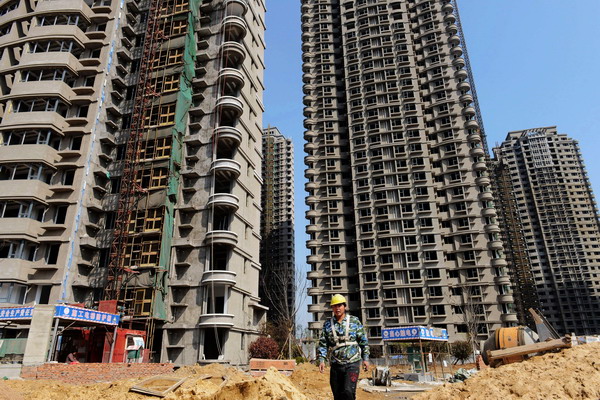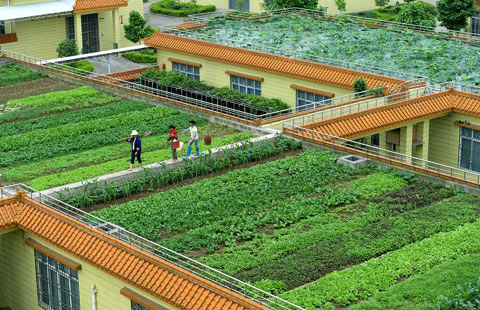Nobody's home in 10.2m apartments, survey finds
By Zheng Yangpeng (China Daily) Updated: 2014-05-13 07:19
 |
|
New towers go up in Qingdao, Shandong province. A new survey found that the residential vacancy rate in Chinese cities is higher than that in major US cities.[Photo/China Daily] |
CLSA study says number could rise annually by as much as 4m
China has about 10.2 million units of empty housing, and that number could rise by 3 to 4 million a year, according to Credit Lyonnais Securities Asia Ltd.
If this estimate is accurate, it means that China's vacancy rate was 15 percent last year, 5 percentage points higher than the average in the United States.
Vacancy rates varied among Chinese cities, CLSA said.
 |
In first-tier cities, which it defined as Beijing and Shanghai, the rate was 10 percent. The rate in second- and third-tier cities as a group was 16 percent.
Ordos, Inner Mongolia - sometimes cited in media reports as a "ghost city" - had the highest vacancy rate of 23 percent.
How many houses are empty is a wild guessing game, because the statistical authorities don't provide figures.
But it's also a crucial number, because the number of vacant homes is directly linked to the extent of oversupply and thus the size of a bubble, if any, in the property market.
Concerns about oversupply increased after an urban building spree in recent years, followed by media reports showing residential communities dark at night.
CLSA's estimate is among the more conservative, with other estimates of vacancy rates ranging from 20 to 30 percent. A study by Peking University in 2013 said an average Chinese family owns 100 square meters of living space, and 10 percent of households own two or more residences.
- Center in HK added to Alibaba's growing cloud coverage
- China, Africa to keep extending economic cooperation: experts
- Bosideng rebranding could just be the Chinese dream in action
- China is not in danger of US-style housing crunch: US expert
- Roof garden in Liuzhou
- Just her cup of tea
- Nobody's home in 10.2m apartments, survey finds
- More firms set up in China

















